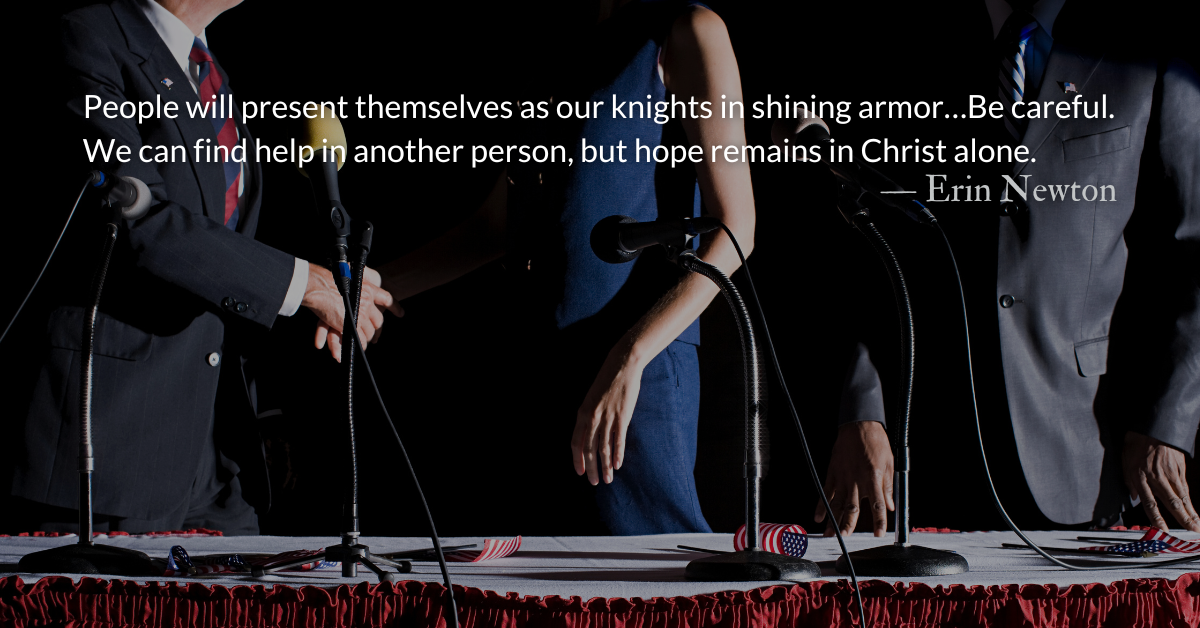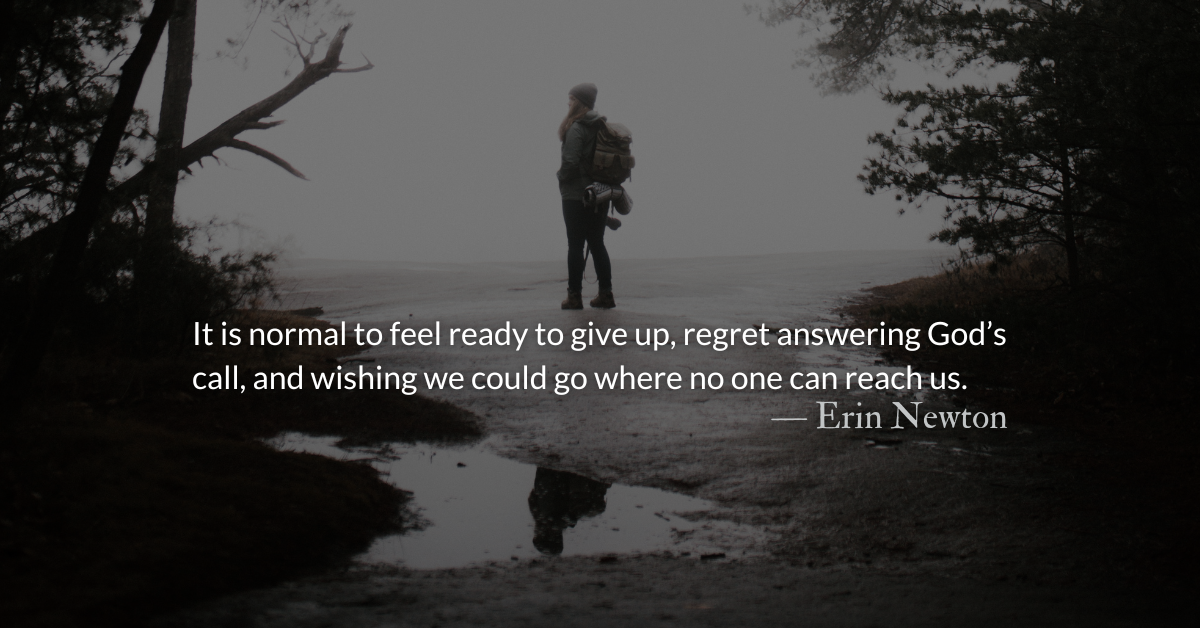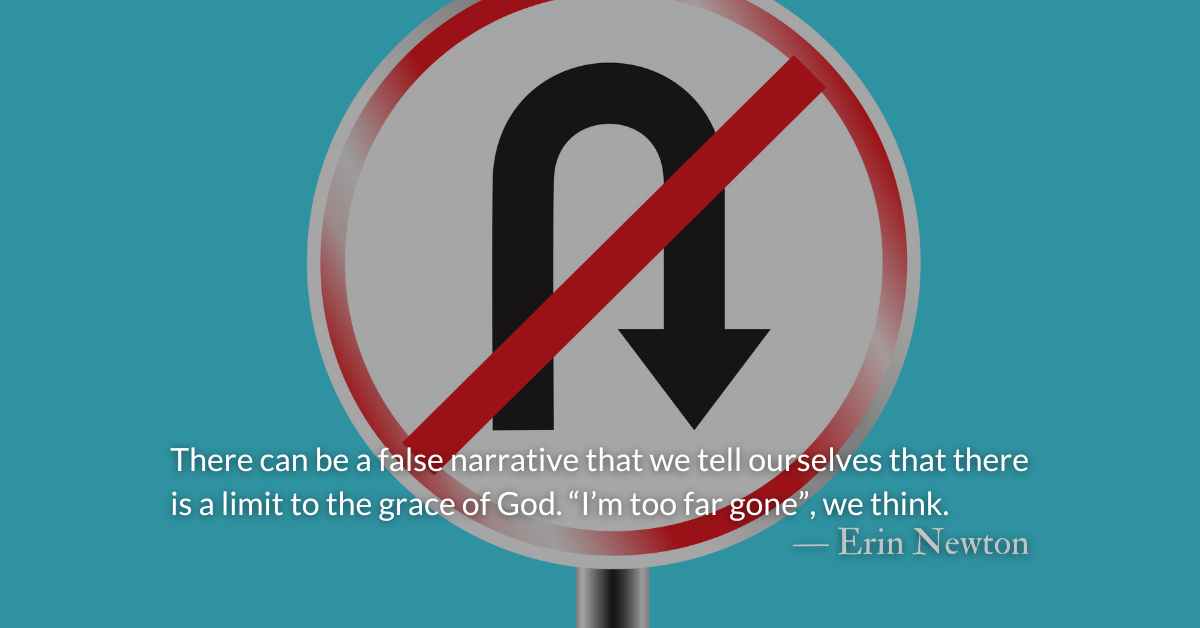Readers’ Choice Month:
This September, The Park Forum is looking back on readers’ selections of our most meaningful and helpful devotionals from the past 12 months. Thank you for your readership. This month is all about hearing from you. Submit a Readers’ Choice post today.
Today’s post was originally published, on August 23, 2022, based on Jeremiah 17:5-6
It was selected by reader, Karen Kallberg, Saint Louis:
“‘We can find help in another person, but hope remains in Christ alone.’ I had to learn this lesson in a dark hour of my life. Now as a counselor, I am learning to help others discover the freedom in trusting a Savior who may not do as we wish but will never fail us. To this post, I heartily say, ‘Amen.’”
Scripture Focus: Jeremiah 17:5-6
5 This is what the Lord says:
“Cursed is the one who trusts in man,
who draws strength from mere flesh
and whose heart turns away from the Lord.
6 That person will be like a bush in the wastelands;
they will not see prosperity when it comes.
They will dwell in the parched places of the desert,
in a salt land where no one lives.
Reflection: Don’t Hope in Humans—Reader’s Choice
By Erin Newton
As we read the Old Testament, we often scoff at idolatry. Hmph, how primitive, we think. Most of our world sees God as one of many religious, divine beings but considers all such powers as ultimately nonexistent. By default, trust shifts from the divine to the created order. We are a culture that not only trusts in humanity but takes pride in doing so.
Jeremiah lives among a culture that rarely sees any dichotomy between the natural and supernatural yet speaks of this erroneous way of living that we encounter all the time. The prophet chides the people for trusting in humanity as if nothing could be more foolish. As fools today, our world chides at those who trust in God as if it were all a figment of our imaginations.
Trusting in another human being includes not only trusting another person for security, power, value, identity, and love but also drawing strength from ourselves. The prophet rebukes the mantra to pull oneself up by the bootstraps. He rebukes the idea that a mere mortal could be called upon to fix all of one’s problems. The future of those who trust in humanity will be like those who wander the desert always looking to settle but never finding rest.
We hear politicians speak about promises of a brighter and better future if only we will pick them to lead us. We are confronted with the failures of our religious organizations and are told that if we follow “so-and-so” then everything will be made right. Sometimes we hope that if we can be loved by this one person, then our souls will be filled and our identities complete.
It is a lonely, confusing, and hurting world that we live in. We want something to cling to in times like this. Unsurprisingly, people will present themselves as our knights in shining armor. As we look for hope and answers, let us be careful. We can find help in another person, but hope remains in Christ alone. We cannot call another person our savior or speak about someone as a cure-all for our world.
The only person worthy of our trust is Christ. We can draw strength from our Lord who put on flesh but was fully divine. He is our anchor. God may choose to use men and women to bring peace or prosperity, but wholehearted trust can only be in God.
Divine Hours Prayer: The Cry of the Church
Be, Lord, my helper and forsake me not. Do not despise me, O God, my savior.
– From The Divine Hours: Prayers for Summertime by Phyllis Tickle.
Today’s Readings
Jeremiah 34 (Listen -4:15)
1 Corinthians 10 (Listen – 4:04)
Readers’ Choice is Here!
What post from the last 12 months encouraged or uplifted you? Tell us about it and we’ll reshare it this month.
Read more about No Princes
How many believers veil their trust in men as trust in God? This can cause problems in two ways.






